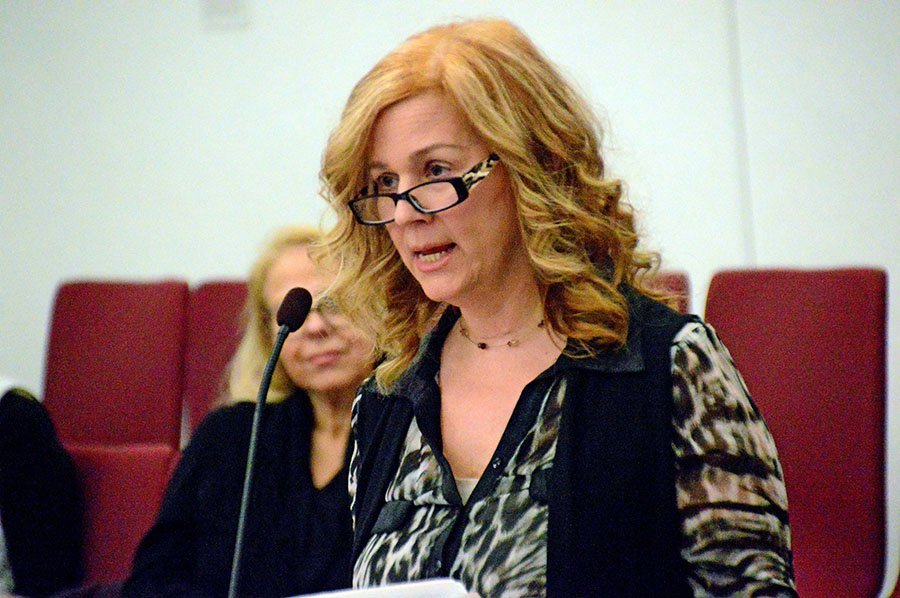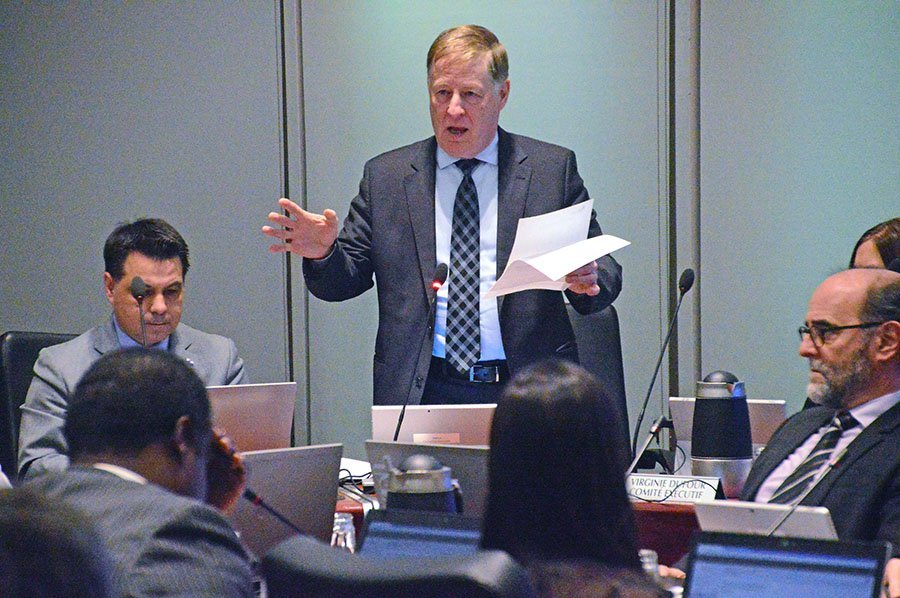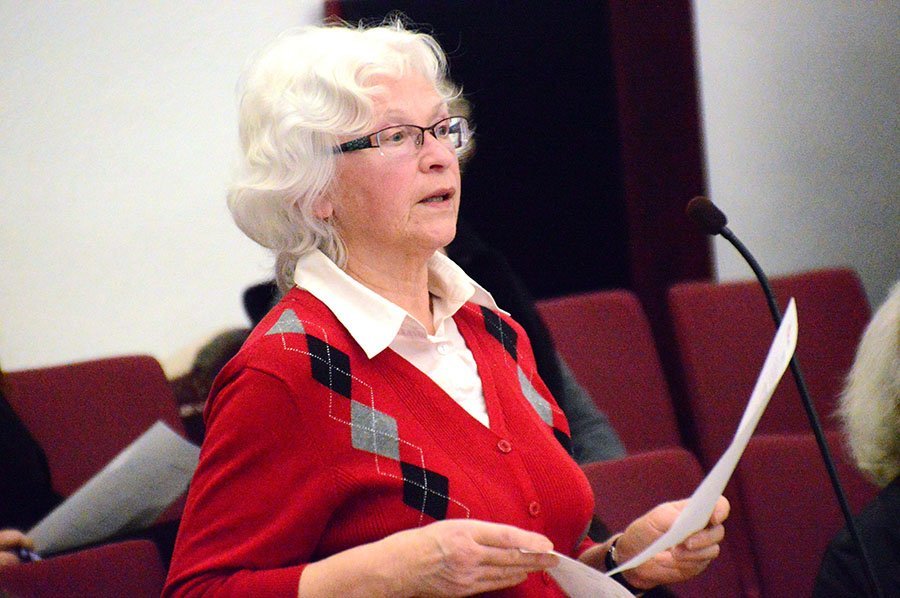Martin C. Barry
Cold and turbulent weather on the evening of Jan. 16 may have been a contributing factor in the low public turnout for Laval city council’s first meeting of 2018. Despite the meagre attendance, those who did show up were eager nonetheless to bring up their issues – which included the quality of the city’s snow removal.
Snow removal complaint

During the public question period, Litsa Eftaxias of Laprade St. in Chomedey said that she and other residents on the street were dissatisfied with the snow removal service for years. She said she tried to bring the problem to the attention of city council in February last year without any resolution.
While noting that snow removal on Laprade St. obviously isn’t a priority for the city, Eftaxias said that after waiting weeks for the street to be cleared since the last storm, the situation had become unacceptable. “Laprade St. was forgotten once again,” she told the mayor. “This is unacceptable and intolerable for the citizens.
Whose responsibility?

“It should not be the responsibility of citizens to have to call each time there’s accumulation of snow and then wait up to a month for snow removal,” she continued. “There is absolutely a problem with the snow removal team and those who are responsible for removing snow on Laprade St. You must evaluate and solve this problem please.”
According to Mayor Marc Demers, streets being cleared of snow in Laval are done in order of priority, with streets with institutions such as hospitals and schools being at the top of the list, while residential avenues are at the bottom.
All the same, he acknowledged that residents on Laprade St. “have a right to be cleared of snow within a normal time frame.” He said he would look into the possible reasons why snow removal may have been poor on the street up to now.
Raising urban chickens

Suzanne Lessard of Fabreville asked Mayor Demers about the City of Laval’s official policy for allowing residents to raise chickens at home. Lessard said she first started raising chickens in August 2014 when she was by a city official that the practice was “tolerated” in Laval.
All the same, she continued, in September she was visited by the same official, informing her that a complaint about the chickens was filed by another resident. She then received an order to get rid of the chickens by May 31 this year. Lessard asked Mayor Demers to rescind the order.
While confirming that Laval used to forbid raising chickens in its zoning regulations, the mayor said city council decided it would study the issue. However, he continued, since a third of Laval’s territory is zoned for agricultural use, there is no doubt that raising chickens is allowed in these areas.
By-law changes coming
However, Demers pointed out, a specific by-law for urban chicken farming won’t come into force until the provincial government approves the City of Laval’s master urban plan. As for the by-law violation ticket Lessard was issued, he said he isn’t empowered to repeal it, as it can only be cancelled by a judge in court. “I’d feel very uneasy if police or inspectors were issuing notices of infraction and we were deciding to revoke them,” he said, adding that “it’s something that’s not done.”
Viviane Monette, a resident of the Maritime high-rise tower on Lévesque Blvd. West, told Mayor Demers that following the December Laval city council meeting during which she went up to the microphone to raise an issue, she was visited by a police officer who said he had been mandated by city council to follow up on her intervention.
A visit from the police
As well, she added, she received a phone call after the Christmas holidays from the policeman’s superior who questioned her again. Monette asked the mayor what motivated the city to authorize the police to follow up on an initial complaint by her and other residents concerning a new construction project in their area, while taking into account that they first complained last June.
The mayor explained that whenever a resident makes an allegation at a city council meeting involving potentially illegal acts, the police become involved to investigate. He pointed out that officials from other city departments, such as urban planning and public works, regularly attend council meetings to monitor for complaints and to follow up if necessary.



